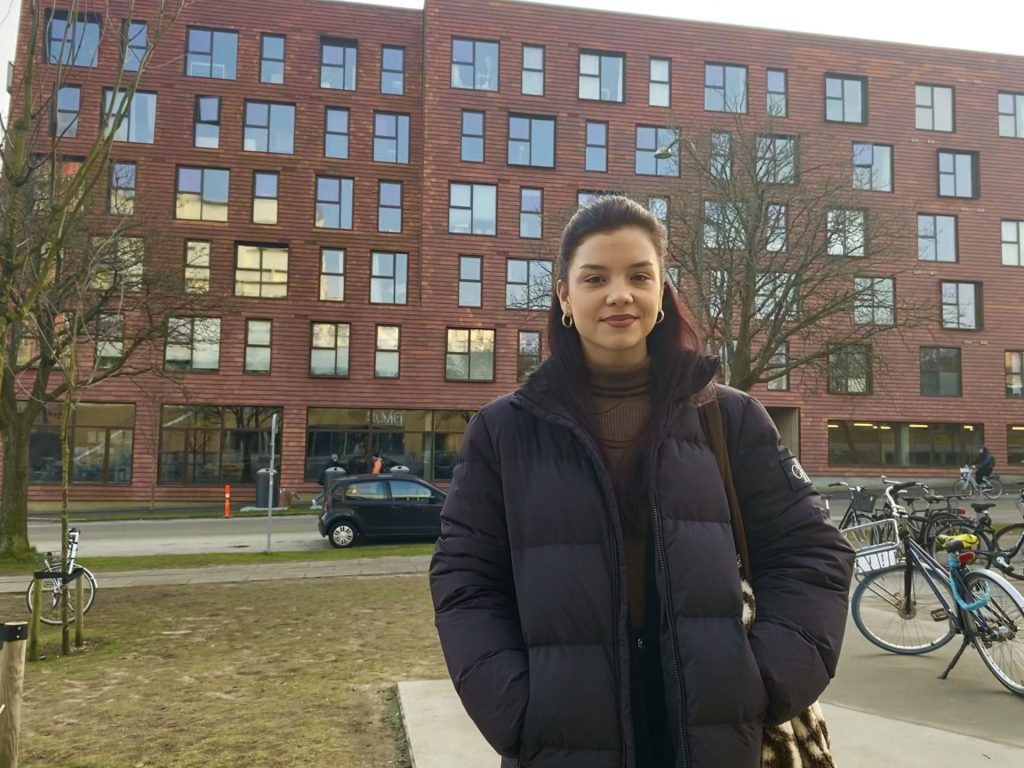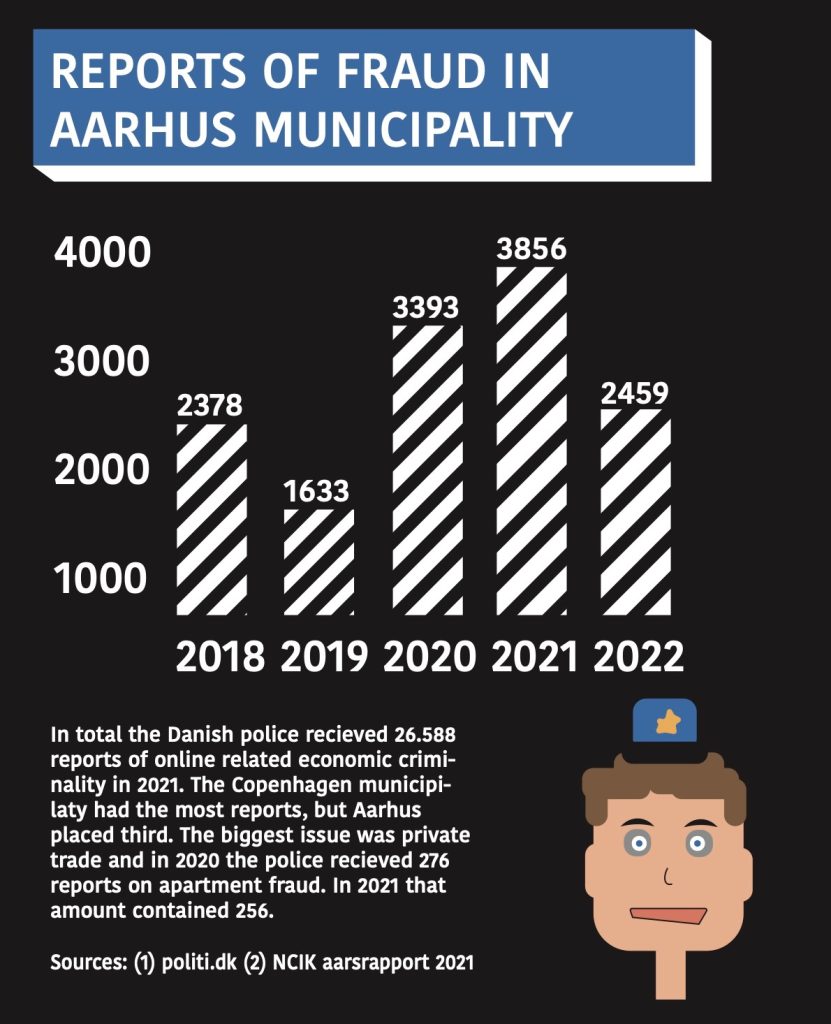
By Bas Brouwer and Millie Beswick
When the Romanian student Tamara Pop, in October of last year, was told that she was chosen to study abroad for a semester, she was over the moon. The small city of Aarhus in Denmark was the place where she would fulfil a program in video journalism for the next five months. One of the things she had left to do before arriving was to find a suitable place to stay. But as soon as she finds one and puts the money down, she makes a shocking discovery: she’s been scammed.
As a young student getting scammed on the internet is not the first thing that comes to mind, and it seemed normal when the apartment search started with a Facebook post and a guy who seemed as nice as the next person. They exchanged a couple emails and after receiving a picture of his ID, Tamara signed the contract for her new place and transferred the deposit. At first everything seemed fine, but when they had to transfer their first rent the Landlords tone suddenly changed.
,,I searched his name on the internet and the first thing I found was a rental scammer with his name,” she says with annoyance. It quickly became clear that she had been scammed, but with little information about the scammer and a transfer through an app that didn’t track the transactions, the hope of getting the money back was nonexistent.
Lejernes Landsorganisation is a Danish organization who is committed to the rights of students. Whenever students complain about their tenants or experience disagreements with them, they can contact LLO. Scamming is one of the things they can get help with. According to lead lawyer Anders Svendsen, one time a year is primetime for students getting scammed. ,,It is very season based, especially around summer time. During that period most students find out which university they’ll be attending and due to this the demand for a suitable place to live is high, making it the ideal breeding time for scammers.”
Despite the fact that young people know their way around the internet, they are still more vulnerable to housing scams than other target groups, says Svendsen. ,,For most students it is the first time they leave home and find an apartment on their own. As a result, they are less aware of the warning signs and other suspicious things, such as incomplete leases.”

,,It’s easier to get scammed as an international student because everything is new, and we don’t know the area”, says Tamara. ,,We want to find something quick, so we are sure we have a place to stay.”
When everything’s confusing, you might not see the same warning signs as if it was in your home country and even though Tamara notices the red flags now, she didn’t in the moment. She hasn’t reported it to the police as the scamming happen when she was still in Romania and wanted to wait until she was present in Aarhus to file a report.
Svendsen also believes that international students are more prone to getting scammed. According to him that is because they can’t see the apartment in person beforehand. The internationals can only judge based on photos and videos, but they can’t tell if it’s a scam or not. However, the lead lawyer cannot say whether students are scammed more easily via Facebook than via other platforms. ,,The fact is that certain information is not always available when renting via Facebook. For example, MitID is not necessarily requested.”
If Tamara could give a piece of advice to new international students it would be to facetime the landlord before signing a contract and transferring the money through a bank, so it’s traceable.